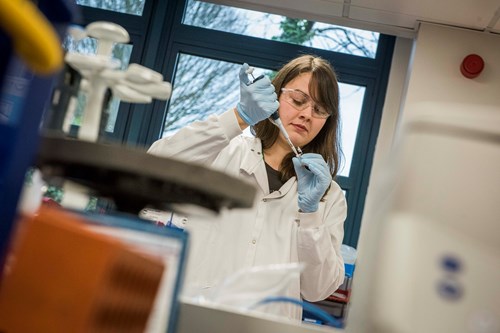Highland scientists research global health risks for animals and humans

SRUC Scientists are expending their focus to assess future public health threats
With climate change, Covid-19 and Avian Influenza posing risks to people, animals and the planet, scientists at Scotland’s Rural College (SRUC) are expanding their focus to help assess future public health threats.
Researchers at the newly named Centre for Epidemiology and Planetary Health (CEPH), which forms part of SRUC’s Northern faculty based in Inverness, are conducting research into disease links between animals, humans and the environment.
The CEPH team is currently engaged in national and international scientific studies to improve the health of livestock in both agriculture and aquaculture, as well as being involved in a range of studies investigating the health of wild animal populations.
The centre is also a major focus for research excellence in disease surveillance including zoonoses - diseases which can be transmitted from animals to humans - with the aim of providing integrated solutions through an overarching ‘one health’ approach.
Professor John Berezowski, Chair of Disease Surveillance at CEPH, said: “Accelerating climate change also threatens the sustainability of food production, economies and ecosystems worldwide.
“Within the next 10 to 20 years, we can expect many new and potentially devastating threats to these systems to emerge at an increasing rate.
“This new centre will provide much needed applied research and information systems to help the affected sectors to become more nimble and able to respond quickly to these unexpected challenges, ensuring their sustainability into the future, while at the same time protecting the integrity and sustainability of our planet.”
The SRUC scientists are recognised for their expertise in disease surveillance and control, veterinary public health, genetics, molecular, vector, pathogen biology and One Health.
Social science, data, statistics and quantitative epidemiology also form part of the large-scale field studies conducted by the centre to investigate the epidemiology of infectious and non-infectious diseases.
Significant ongoing research includes work on foodborne zoonoses, especially shiga-toxingenic E. coli, tick-borne Lyme disease, antimicrobial resistance and production diseases in cattle, sheep, pigs and farmed salmon.
The CEPH team will play an important role in the new SRUC School of Veterinary Medicine which is being developed across Scotland. A new Master of Research (MRes) in Zoonoses and Epidemiology on Animal Infectious Diseases is currently being delivered, largely by distance learning, from SRUC’s base in Inverness.
For more information, visit: Centre for Epidemiology and Planetary Health (CEPH).
Posted by SRUC on 21/11/2022
